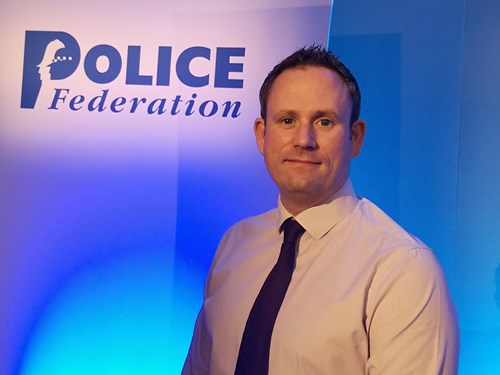Pay, Morale & Welfare
8 December 2020

I will be working closely with the Chief on the results from the Pay and Morale survey. It’s vital that we continue to think of new and innovative ways to reduce the pressures and strains of police work on the officers who are on the front line.
The impact on officers’ wellbeing, particularly their mental health has to be at the forefront of our minds when we are asking officers to deal with some things that human beings should not be subjected to. Sadly, during their careers officers are subjected to these things repeatedly.
Add the coronavirus into the mix and you have a perfect storm. We, as a community here in Norfolk, have all been dealing with impacts of Covid-19 on our lives both professionally and personally. However, officers have had a unique role in their professional lives, which has meant they’ve had added pressures and strains.
Officers have been on the frontline of this pandemic since it started in March this year. For the past nine months officers have worked tirelessly to enforce the Covid-19 regulations, which include policing protests and illegal raves. But we can’t forget that even though we’re in the middle of a pandemic, officers have continued policing the entire array of work that the police have to deal with. Protecting the vulnerable from all types of crime by safeguarding them and locking up criminals. Finding missing people, supporting people in mental health crisis, dealing with serious RTCs, firearms incidents, and bearing down on drug dealers and organised crime groups.
You also have to add in the fact that my colleagues locally and nationally have been on the end of a 21% rise in assaults in the first three months of the pandemic. These assaults were committed by people who ‘weaponised’ coronavirus by claiming to have it and spitting directly at officers’ faces. Some people actually did have the virus when they did that.
My colleagues are human beings who happen to wear a uniform and are out there protecting our communities from this virus and crime. They worry that they will take this deadly virus back to their loved ones. I’ve spoken to the many officers who’ve been spat at full in the face by people who then threaten they have Covid-19. This is abhorrent, but these are the men and women who put on that uniform to serve their communities without fear or favour.
My colleagues have once again risen to the challenge and have done an outstanding job in the most challenging circumstances. I am proud of what they do day in, day out, 365 days of the year. They continue to rise to the challenge time and time again.
But eventually rising to these challenges day after day, week after week, month after month takes it toll on their physical and mental wellbeing – and therefore their morale. This is why we need to consistently protect and support them as they are putting themselves in harm’s way, both physically and mentally.
These are some of the reasons why 47% of those officers responding to the survey are reporting their morale is low.
The survey also showed that 57% of officers feel worse off financially than five years ago. And 7% reported that they either never or almost never have enough money to cover their monthly essentials. Therefore, the announcement by this Government that public sector workers are now subject to a pay freeze is difficult to swallow for the police officers I represent. Officers are all too aware of the impact of the pandemic in terms of our communities and the country’s financial position. But my colleagues have been on the front line of this pandemic much like many other public sector workers.
Living standards for police officers and many others are today still no better than in 2008. Officers have only recently come out of the last period of austerity from 2010, in which we saw a real-term drop of 18% in our pay and included pay freezes. This freeze simply compounds this issue and is simply wrong and unfair.
But let’s not balance the books on the back of public sector workers – particularly police officers. We should grow our way out of this crisis, not freeze the wages of police officers who’ve put their lives at risk – as well as the safety of their families – by policing the pandemic.
This freeze will hit those who have sacrificed the most and have been on the front-line of this pandemic. Officers, like other public sector workers, are the stitching that keeps the fabric of our communities together. The Government rightly applauded public sector workers in how we’ve worked through this hellish past nine months. Now they have rewarded us by turning their backs on exactly the people who have been working flat out to support our country through these immensely difficult times.
It has to be remembered that we have a very young workforce within policing, which means we have many young-in-service officers. This means that when they join the police service their hourly rate is £11.88. This freeze will affect these young-in-service officers most. What we ask of these officers is huge in terms of their physical and mental health – the restrictions on their private life.
Police officers do not join the service to earn lots of money; they join the service as a vocation and believe in helping their communities by policing them. All we expect in return is to be treated fairly by the Government. We have never asked for huge pay awards but fair and appropriate ones which are evidenced.
This announcement of the freeze is neither fair or appropriate, it’s the opposite. It will simply demoralise officers further.


















